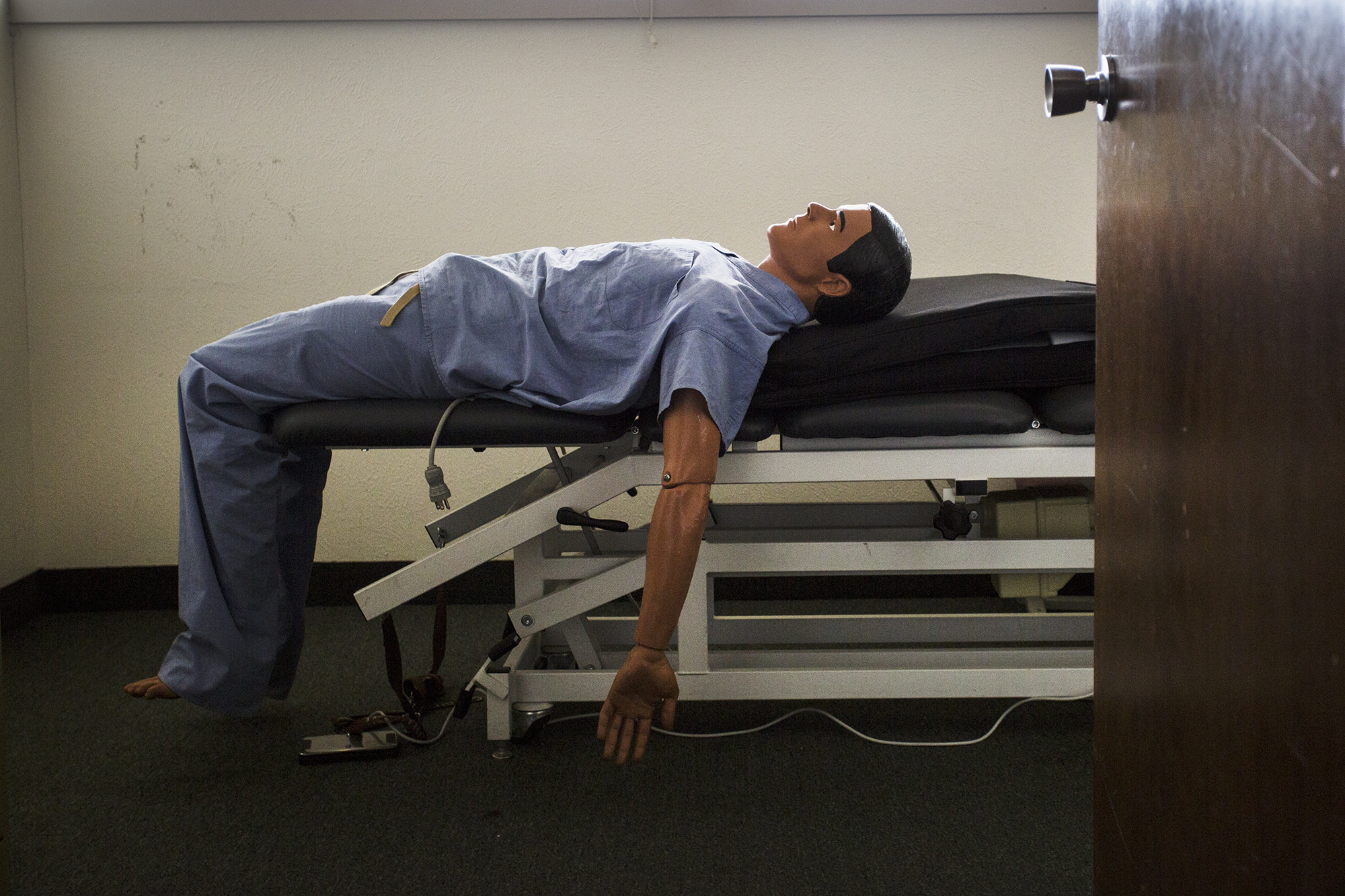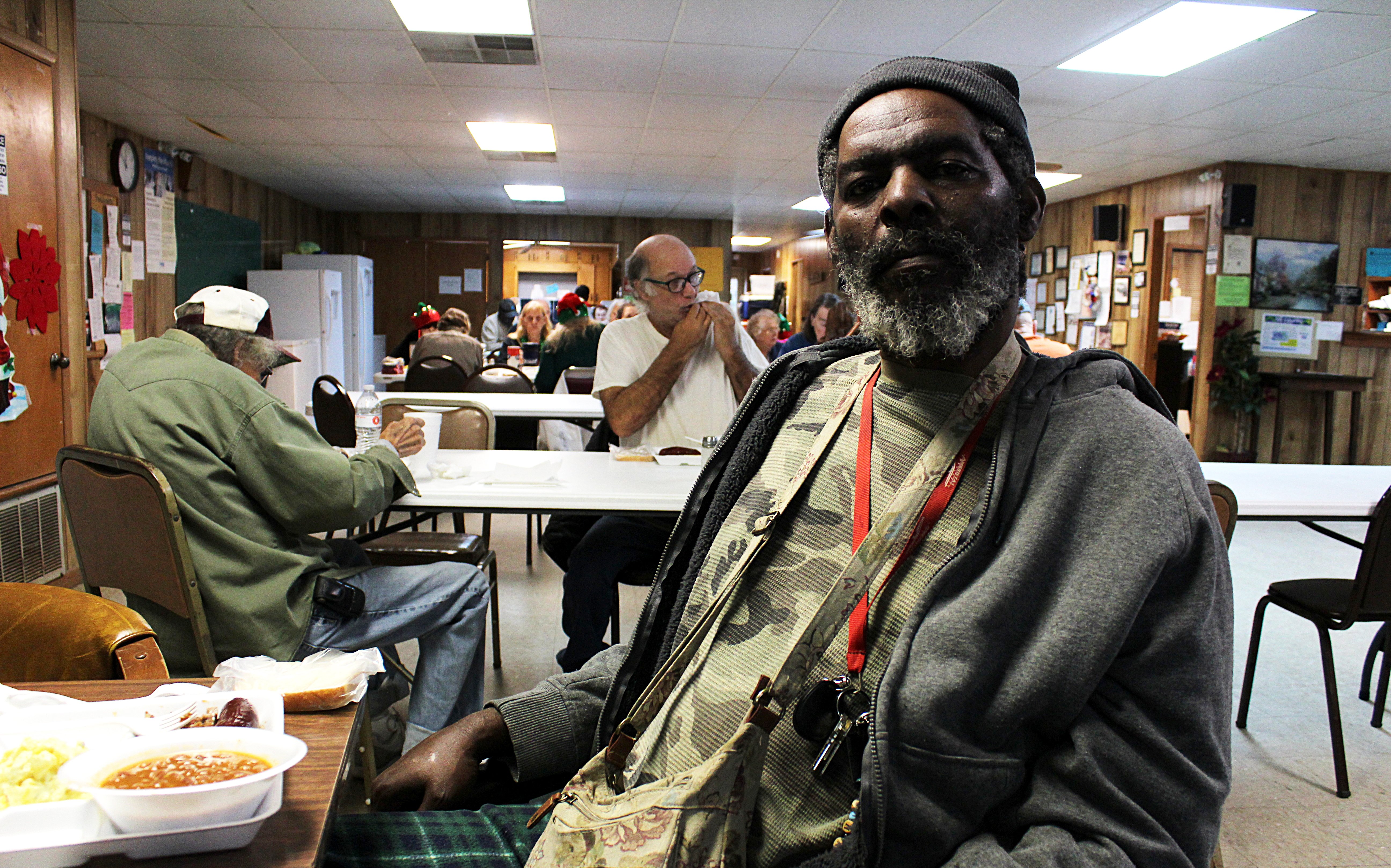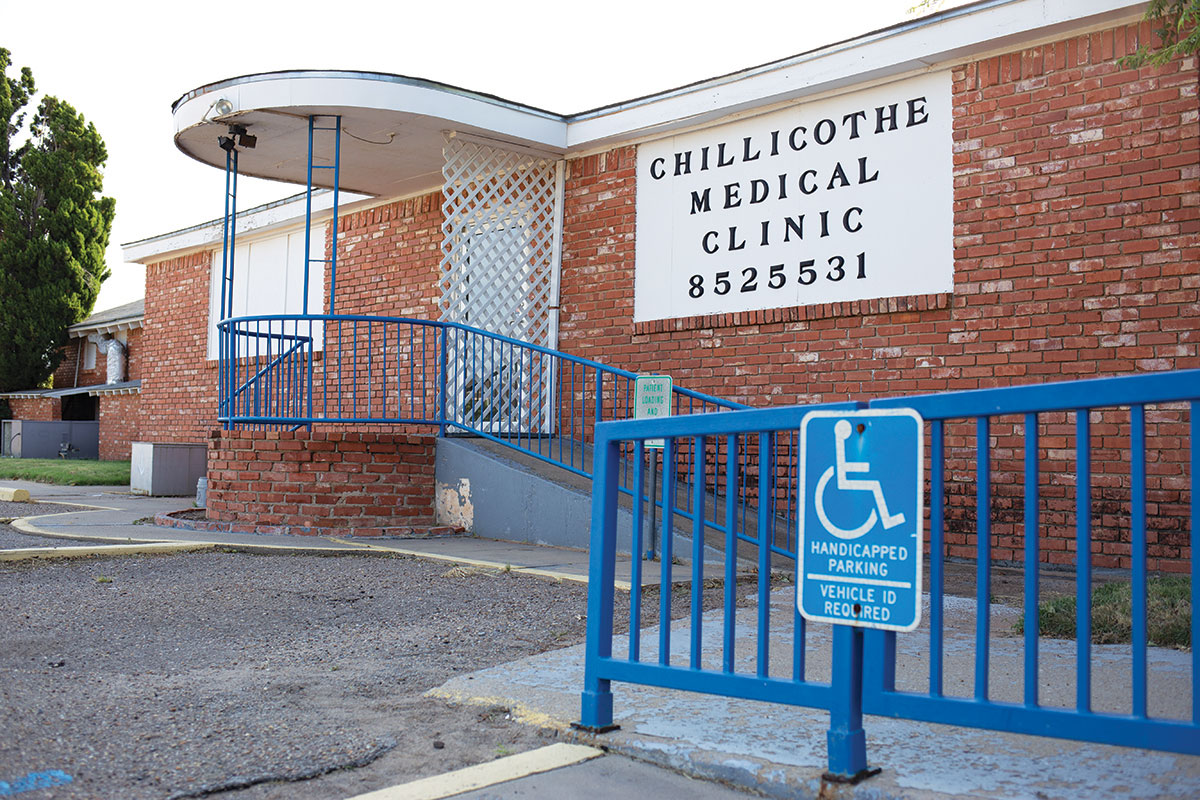
Scenes from a Rural Hospital’s Final Day
Chillicothe Hospital closed its doors on July 22. Its closure reverberated through the community in both expected and surprising ways.
A version of this story ran in the November / December 2019 issue.
This story is part of “Critical Condition,” a series investigating Texas’ rural health care crisis. Read Part 1 here.
Inside a tiny frontier hospital at the Texas Panhandle’s southern boundary, Judy Borton is hunched over the same gas stovetop that she’s cooked on for the past 47 years. This summer morning, Borton is right on schedule: She’s simmering hamburger steaks, grabbing canned green beans from the pantry, and whipping up a bowl of powdered mashed potatoes for the few remaining folks on the local Meals on Wheels program. “I don’t want to brag, but I’m known for my rolls,” she says. Borton apologizes for not making a batch today. There’s just hardly anyone around to eat them anymore.
Borton used to be one of two cooks at Chillicothe Hospital, a health care hub in this town of about 700 people, an hour northwest of Wichita Falls. For years, the pair had stayed busy making meals for the doctors, nurses, patients, and their families. Now, all the doctors are gone. All but one of the nurses have retired or been let go. There hasn’t been a patient in the hospital for several months now.
Soon, Borton will be out of a job too.
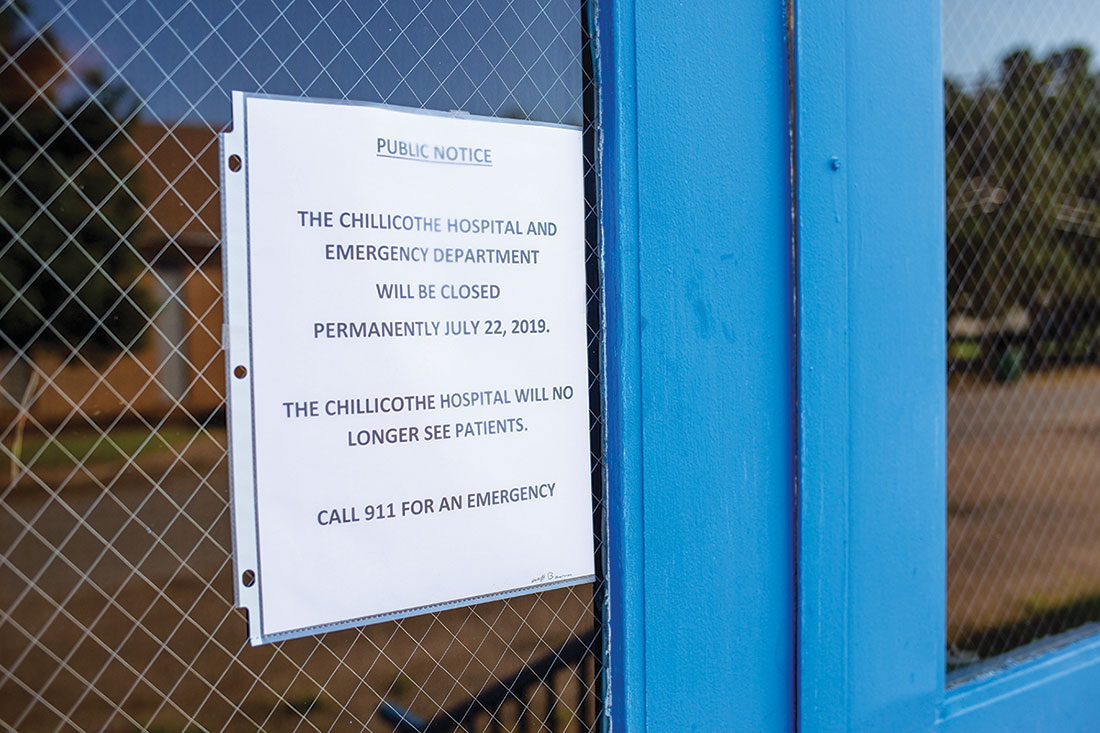
It’s July 22, and Chillicothe Hospital is closing. Built around 70 years ago, the hospital has been forced to accept fewer and fewer patients because there aren’t enough nurses to see them. This trend is mirrored in the surrounding town of Chillicothe, which has hemorrhaged half its population in recent years. With so few patients to bring in revenue, the hospital can’t make ends meet. Recently, visitors who do come have been met with a paper sign taped to the front door, directing them to the closest hospitals about 20 minutes away.
Inside, the exam rooms are dark. The waiting room is empty. Emergency management workers from Wichita Falls will clear everything out later this afternoon—hopefully they’ll be able to sell most of the equipment, says Bill Barnes, a former hospital administrator who was brought on by the hospital board to help close down the facility. Last week, he had to lay off most of the staff; the hospital took out a loan to make the payroll. Now, state workers are taking down the hospital signs on the highway, and a hospital employee is trying to pry the ER sign out of the front lawn.
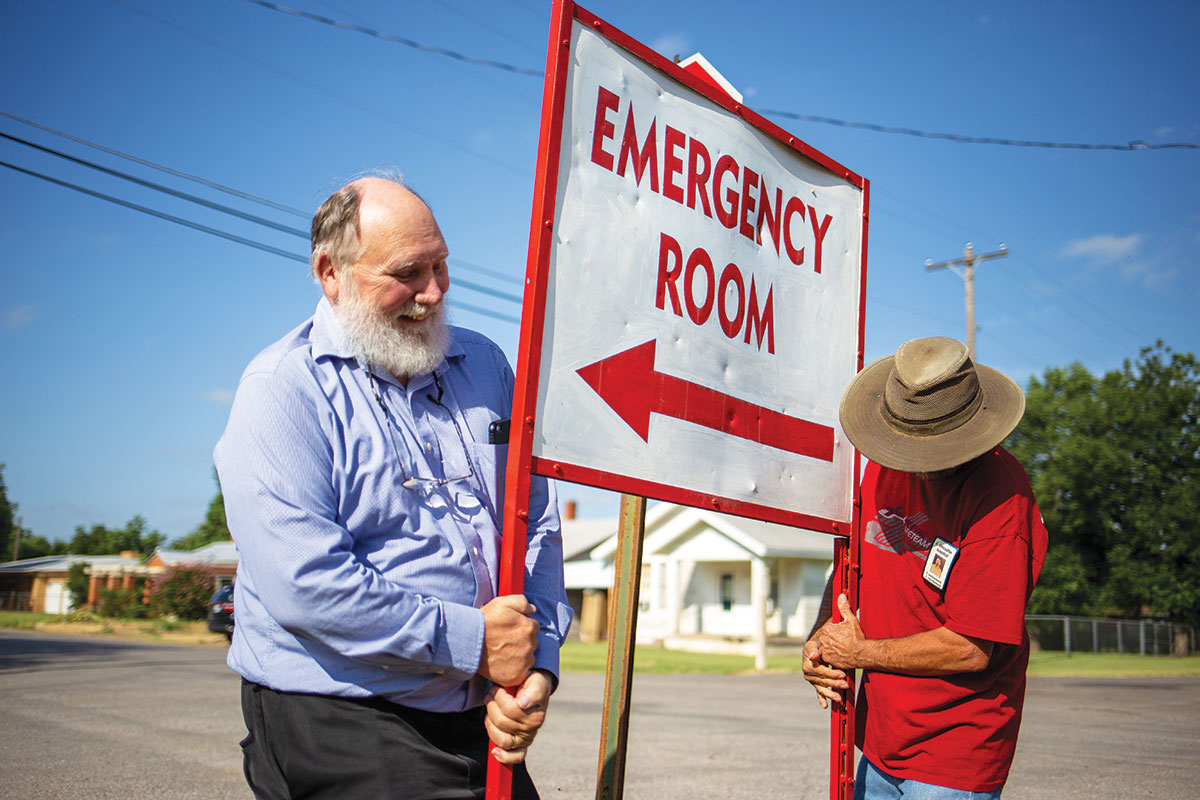
The closure reverberates through the community in unexpected ways: Alcoholics Anonymous had been holding evening meetings at the hospital, and now they have to find somewhere else to go. The future of Meals on Wheels in Chillicothe is uncertain. As we stand in a hallway, someone pushes a shopping cart full of frozen ground beef, part of a cache of emergency food supplies that the hospital had stored for the town in case of a disaster. It’s now been sold to the local school.
The clinic attached to the hospital is staying open for now, but Barnes doesn’t know how long it’ll last. In the waiting room is a man who traveled with his elderly mother from Frederick, Oklahoma, a town that also lost its hospital, to see the doctor here, only to learn that the hospital is closing. If she needs to be admitted today, it won’t be in Chillicothe. As he waits, Barnes passes through the clinic, sticking his finger in the soil of a vine planted along one wall. “This needs water,” he remarks, before opening the door and leaving.
Correction: The story originally misspelled Judy Borton’s name as Judy Borpon. The Observer regrets the error.
Read more from the Observer:
-
Governor Launches Camp, Backs ‘Mega-Tent’ for Austin’s Homeless, Surprising Advocates: The governor and Austin’s business community announced plans for a temporary campsite and a future “mega-tent” shelter for the city’s homeless community. They’re working separately from local homeless service providers.
-
Potter County Criminal Defense System is Lambasted in a New Report: A 200-page report produced by the Sixth Amendment Center exhaustively shows how the long arm of the law gives poor people in Amarillo the short end of the stick.
-
When ICE Emptied Out an All-Women Detention Center in Texas, Chaos Ensued: Women formerly detained in Karnes County Residential Center have been lost in the shuffle, facing moved or cancelled court dates, high bonds, and legal confusion.

